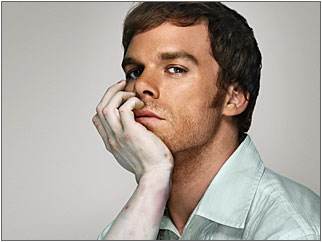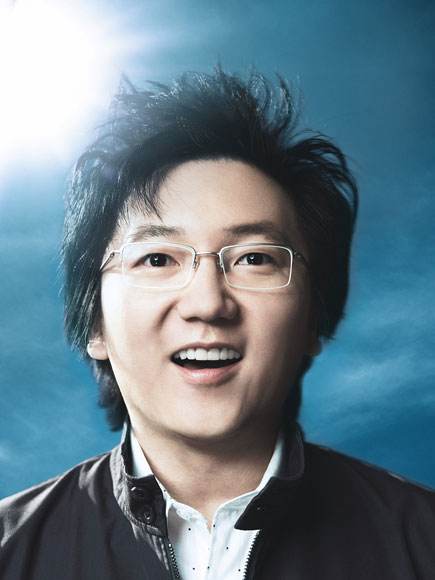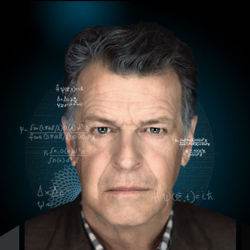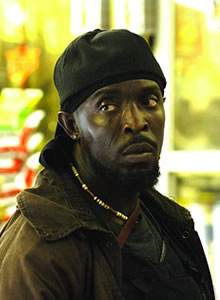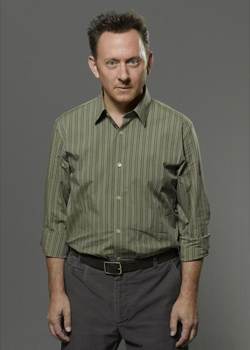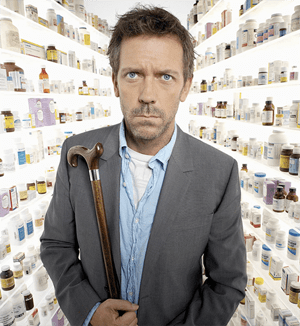Without a doubt, the aughts (my favorite name for this past decade) have been the absolute best decade for television, ever. Shows such as LOST, The Wire, and The Sopranos made audiences think like never before. Of course, all these dense storylines were nothing without the characters who played them out. Memorable characters have come from television throughout the decade, from sitcoms to serial (killer) dramas.
I’ve selected my top ten favorite television characters from the past decade, and we’ll take a look at them as we go through the list. Of course, it’s all quite a matter of opinion, and you’ll probably disagree with many selections on my list — so argue with me in the comments section and tell me who you think should have made the list, and who shouldn’t have.
For the record, my list comprises of all characters who were first introduced in the aughts, and did not exist before. That’s why favorites such as Homer Simpson are not included on this list.
First off, we’ll start with some honorable mentions of those who came so close to making the list but didn’t quite make it.
- Adrian Monk, Monk
- Dwight Schrute, The Office
- Gob Bluth, Arrested Development
- Sylar, Heroes
- The Tenth Doctor, Doctor Who
- Larry David, Curb Your Enthusiasm
- Lafeyette Reynolds, True Blood
- Charlie Kelly, It’s Always Sunny in Philadelphia
- Don Draper, Mad Men
- John Dorian, Scrubs
- Carmela Soprano, The Sopranos
Now, let’s get started with the real list.
LOST, in its five-year run, has spawned many unforgettable characters. However, this bald hunter from California has proven to be one of the most memorable and tortured characters the show has to offer. After arriving on the Island with the crash of Oceanic Flight 815, Locke quickly established himself as a mysterious man who seemed to have fallen in love with the mysterious Island his fellow survivors were desperately trying to escape from. The reason for this became clear in the fourth episode of the first season, “Walkabout,” in which it was revealed through flashbacks that Locke had been a pathetic wreck off the Island, and had been confined to a wheelchair (later revealed to be a result of his con man dad pushing him out of a window). However, after arriving on the Island, he regained his ability to walk.
Locke became a leader on the Island, often clashing with Jack Shephard, another survivor, over the matter of science vs. faith. Locke, who chose the faith side, eventually gathered his own group of survivors and split from Jack’s faction, though they were still forced to fight the mercenaries who came to the Island aboard the Kahana freighter.
After the rescue of the Oceanic 6, Locke travelled off the Island to convince them to return, but was killed by Benjamin Linus (who had long manipulated Locke’s weakness to being told he was special), and was placed in a coffin on Ajira Airways Flight 316, which eventually travelled back to the Island. Upon arrival, the survivors discovered Locke alive. Locke then travelled to find the ancient Island inhabitant Jacob, plotting to kill him. In the climax of LOST‘s fifth season finale, “The Incident,” it was revealed that the resurrected Locke was actually an ancient nemesis of Jacob’s, who had been plotting to kill him for centuries, with the real Locke’s body remaining in a coffin. This great plot twist was one of the most shocking moments in LOST‘s history.
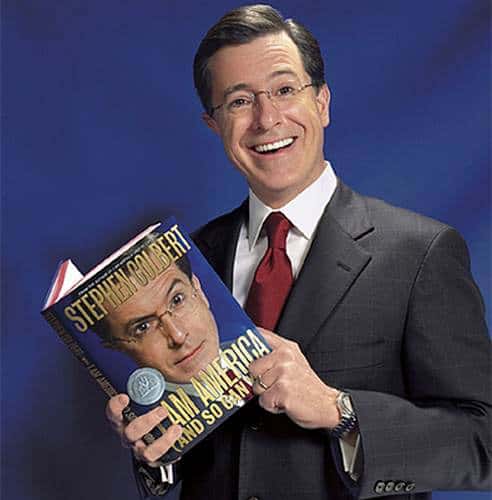 #9 – Stephen Colbert, The Colbert Report
#9 – Stephen Colbert, The Colbert Report
Yes, he is a real person, and yes, Stephen Colbert is his real name. But the Stephen Colbert we all know is one of the most exaggerated characters on television today, and that’s why we love him.
He started out as a correspondent on Jon Stewart’s The Daily Show, but he became such a fan favorite that he was given his own spinoff, The Colbert Report (both ‘T’s are silent). The Report is a great parody of personality-driven news shows like The O’Reilly Factor and Scarborough Country, and Colbert’s character of a belligerent idiot works so well in these situations.
However, the fictional Colbert is so much more than a television anchor. He’s written a book, I Am America (And So Can You), which is basically an extension of his television show, and he’s also run for president (in the universe of Marvel Comics, he won the popular vote).
And has anyone forgotten the June 2009 episode of The Colbert Report in which President Barack Obama (yes, it was really him), ordered a United States General to shave Stephen’s head? I invite you to name any other television character who has spoken directly with the President of the United States (Jack Bauer doesn’t count).
America, this is a great television character.
There’s nothing like a good serial killer to make a great protagonist. Dexter Morgan, of Showtime’s Dexter, is one of the most interesting anti-heroes to hit the small screen. He’s a serial killer who kills serial killers.
Dexter is devoid of emotion, and that’s what makes him so compelling. In his narration, he tries to assure the viewer that he’s far removed from humanity as a whole, though he sounds like he’s trying to convince himself that more than the viewer. He also has admitted that he does have some human emotion, especially when it comes to remorse.
And you have to admit, it’s awesome to watch Dexter’s face-offs with his enemies, and his unique ways of killing (slashed throats with dinner knives? Cool).
And let us not forget the absolutely brilliant Trinity Killer storyline from season five, in which Dexter squared off with someone else of considerable skill of murder: Arthur Mitchell, who had escaped the law for thirty years. After a season-long cat-and-mouse game, Dexter finally killed Mitchell, only to discover that Mitchell had first killed his wife, Rita. Where this loss turns Dexter’s character will likely be one of the most interesting parts of next year’s television.
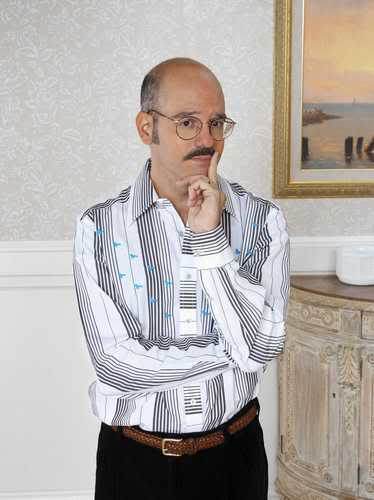 #7 – Tobias Fünke, Arrested Development
#7 – Tobias Fünke, Arrested Development
I’ll go ahead and say it: Tobias Fünke was one of the most enigmatic characters of television. With both a warm personality and a damaged psyche, poor Tobias often found himself the butt of many of his own jokes, damaging his psyche all the more. But boy, was he funny.
“I was like a cat,” he bragged to his family in one episode. “I always ended up on all fours. …like a cat,” he clarifies as his family stares at him. That’s also the wonderful thing about it. As crazy and zany as the entire family is, they all play straight man to Tobias — none of his (un?)intentional double entrendes go ignored, especially those that hint at his repressed homosexuality.
Tobias is often the lighthearted center of the show, especially when surrounded by such selfish and unlikeable characters. Very rarely is his naive demeanor broken, and when it is, you cry with him.
Some of Tobias’ greatest quotes:
- “I just blue myself.” (In reference to his joining the Blue Man Group)
- “I was once both a practicing analyst and a therapist. I was an ‘analrapist.'” (Pronounced uh-nal-rah-pist)
Tobias is, to me, the greatest sitcom character of this decade. It’s a pity that Arrested Development didn’t go on any longer, or he would probably be the greatest character of the next.
Imagine the biggest jerk you’ve ever met. Multiply that by five. Then imagine that for some reason, despite all the jerkish things this guy does, you still like him. It looks like you’re hugging it out with Ari Gold.
Entourage‘s most potent character, Ari Gold is the epitome of a jerk. He’s rascist, sexist, and cares for little other than himself. But he’s also one of the most quotable characters of the past decade, and he’s kind of sympathetic.
Ari serves as main character Vincent Chase’s agent in the unfamiliar world of Hollywood, and through his profane rants, expresses his knowledgability about the tough industry. These rants are rapid-fire, in-your-face, and always riotous. Most viewers don’t watch Entourage for any other reason than watching Ari explode on someone.
Well, they’re either watching for that reason, or to see the dynamic between Ari and his ever-suffering assistant Lloyd. Ari constantly berates Lloyd for any reason he possibly can, and when Lloyd has finally had enough and leaves, Ari tries his best to get Lloyd to return, finally making Lloyd an agent at Ari’s agency. See, we knew there was a reason we liked Ari so much.
Whether or not you like Heroes, you have to like Hiro. The naive little Japanese man has won the hearts of many sci-fi television watchers, and is one of the most iconic television characters of the past decade. Actor Masi Oka has steered the character through awful storylines but still managed to keep the character fresh. One of the best moves the show has ever made was to give Hiro a brain tumor to give him a greater purpose in life; through this we’ve been able to see a more serious, focused Hiro than we’ve ever seen before, save the one from the alternate future of “Five Years Gone.”
Hiro, through his love of sci-fi such as Star Trek (his father is played by George Takei, after all), has become sort of a fanboy mascot, for better or for worse. His navigation of the mysterious world of superheroes through the usage of comic books has given the show a much-needed reprieve from the darkness it’s been facing (both plot- and quality-wise), and has always been worth a laugh.
And, after all, he did utter perhaps the most iconic phrase from this decade’s television: “Save the cheerleader, save the world.”
Fringe, though only in its sophomore season, is being lauded as one of the best shows currently on television. Part of that is due to the character of Walter Bishop, the mad scientist working for the Fringe division of the FBI. When the series began, Walter was in a mental institution, but was soon freed by agent Olivia Dunham, with help from his estranged son, Peter, because they needed him to help solve a case.
Walter stuck around after the mystery was solved, working on dozens of other cases with the team and usually solving them through some massive epiphany.
Of course, he can’t solve these mysteries without unleashing what fans of the show have dubbed “Walterisms.” His random and sudden cravings for food often provide comic relief (he spends one episode trying to find the perfect formula for a milkshake while solving a gruesome case at the same time), and they also have some plot relevance: these foods serve as buffers to help his memory, which has a lot of holes in it due to the years he spent in the mental institution. Walter also doesn’t have much inhibition when it comes to saying what he is thinking. “I thought you’d be fatter,” he says to his son upon seeing him for the first time in years.
While he does carry a lot of the comic relief for the show, there’s quite a serious side to Walter. He knows he is incapable of living by himself but he tries anyway. He lives with his son, Peter, whom he stole from an alternate dimension after his son from this dimension died. But the love that Walter feels for this Peter is genuine, and Peter has slowly come to love him back, even after Walter had abandoned him for years.”Being insane makes him a better father,” Olivia has remarked to Peter. And she’s right.
It also makes him a fantastic character.
HBO’s The Wire is possibly one of the greatest television shows ever. Set in Baltimore, Maryland, the series examined the drug trade and the people involved in it, and it simply worked. It was deeper than any television show had a right to be, and it worked beautifully, especially with such a large and amorphous cast of characters.
Perhaps the most renowned of all these characters is Omar Little. With a distinctive scar running across his face, Omar was a stick-up man who followed a very distinct set of rules — one of which was that he wouldn’t rob anyone outside the drug trade, which he called “the game.” One of the most feared characters on the show, he possessed great aim with a shotgun, as well as unrivaled tactical skill when confronting his enemies. Oh, and he’s gay.
That’s not exactly the character development you would expect out of a hardened criminal like Omar, but that just goes to show the level of depth that the character possesses. He also has a penchant for whistling “The Farmer in the Dell,” he makes it a point not to use profanity, and he escorts his grandmother to church once a month. For someone who is so feared, the viewer really likes him.
One of the few characters to appear in all five seasons of the show, Omar met his end when he was assassinated in a convenience store while buying cigarettes. In a later scene, his corpse is shown in a mixup in the morgue with the toe tags being swapped accidentally with another body. This error is fixed, but goes to show just how quickly Omar became just another casualty of the drug trade, even after five seasons of being its most feared criminal. A very sad end for such a great character.
LOST is the only show to make the list twice, but it has truly produced some of the most memorable television characters of the decade. In addition to our #10, John Locke, LOST has served up an even more memorable character: Benjamin Linus.
He’s one of the few characters that has been followed closely at both a young age and an older age. We’ve followed the character from his birth, which unfortunately caused the death of his mother. Around ten years later, we watched him travel to the Island with his abusive, alcoholic father, and we also watched him meet Richard Alpert, and develop a longing to join the Others, who are indiginous to the Island. And, twenty years later, he defected to the Others and aided in the massacre of the DHARMA Initiative scientists from the Island, even personally murdering his own father.
Of course, the first time we really saw Ben was in season two, when he was captured by Danielle Rousseau and taken prisoner by the survivors of Oceanic Flight 815. At that time, he was going by the alias of crashed balloonsman Henry Gale, and he tried to convince the survivors that’s who he really was. But, once the survivors found evidence that he was lying, he was brutally interrogated by Sayid Jarrah. This beating left scars, but Ben didn’t crack. He’s proven to be quite resilient over the course of the series, being severely beaten at multiple points, and even shot once — but he’s managed to survive.
After escaping the survivors, it was revealed that Ben was the leader of the Others, a title which he had taken from Charles Widmore several years before. Widmore had in turn launched a war on Ben, struggling to find the Island and take Ben prisoner. He almost accomplished this with the freighter Kahana, which resulted in the death of Ben’s daughter, though Ben ultimately avoided capture.
Throughout the series, Ben has proven to be quite a successful manipulator, and has controlled almost every person he has met. However, he is not above being controlled himself, though it took an immortal shapeshifter to do that.
However, Ben ultimately has some human emotion, and seems to love his adopted daughter, Alex, quite intensely. After he witnesses her murder at the hands of Martin Keamy (in exchange for Ben not surrendering), he becomes devastated, summoning a monster to attack the mercenaries and eventually brutally murdering Keamy, despite the fact that Keamy’s death would trigger the deaths of everyone aboard the Kahana.
Ben has been described as having the emotional maturity of a child, and most viewers would agree with this. While he is very cunning, he is unable to cope with denial, even going so far as to kill the suitor of a woman he thought was “his.” However, over the course of the show, Ben has begun to mature slightly, sacrificing being on the Island to save the Island. However, with the end of season five, Ben was seen starting to revert back to his old ways, stabbing Jacob to death after realizing that Jacob didn’t think that Ben was important. It’ll be interesting to see how Ben will continue to evolve in the sixth and final season of the show, and whether he will ultimately be redeemed or damned.
It’s no secret that I’ve lost interest in the television series House. Its cyclical storytelling and lack of plot progression finally made me stop watching after the fifth season. However, that doesn’t mean that I don’t like the character of House; I think he’s one of the greatest television characters ever.
When House was casting, actor Hugh Laurie believed that the series (which didn’t have a title yet) would revolve around the character of Wilson, and that House would serve as Wilson’s sardonic sidekick. This, however, was not the case. House was the main character of the show, and has consistently proven his worthiness throughout the series, especially in the first three seasons.
As a completely self-centered character, House has been often compared to Sherlock Holmes, and the connection is completely intentional. Both characters are geniuses and both characters have addictions. Both characters confide in close friends (Wilson/Watson), and both characters have the address of 221B. Name references to characters such as Moriarty and Irene Adler are thrown around, making the connection all the more obvious.
Like Holmes, House has great intelligence, and often is able to tell a lot about people simply by looking at them (in one instance, he diagnosed a waiting room full of patients on his way out the door).
However, House is also a very sad character. Aside from Wilson, he is unable to build any lasting relationships, though he does have an interest in Lisa Cuddy, the hospital administrator. The child of an abusive father, House walks with a cane after an infarction of the quadriceps muscle in his leg. This muscle was removed, though it caused him to experience pain, leading him to develop an addiction to the painkiller Vicodin, leading him to brushes with the law and eventually hallucinations. House supposedly conquered this addiction in the season six premiere, “Broken.”
House, like our number #6, Ari Gold, has plenty of biting insults at his command. He has a disdain for everyone, citing his mantra, “Everybody lies.” However, despite this, House is very reliant on people, especially Wilson, who often helps House during low moments in his life. House, in turn, helps Wilson during such moments, such as giving Wilson a place to stay during Wilson’s divorce. Cuddy has often saved House from punishment, when urging the hospital board to stand up to Edward Vogler, and when committing perjury during House’s hearing.
House has proven to be one of the most complex and interesting characters ever to appear on television, and is certainly the best character that the aughts have introduced. It’s a pity that he hasn’t been given better material to work with, but at least he is one of the most recognizable faces in the entertainment industry today.
Do you agree with the choice of Gregory House for the television character of the decade? Let us know your thoughts in the comments section below, and leave us your lists — we’re excited to hear what you think.
 Follow Us
Follow Us


